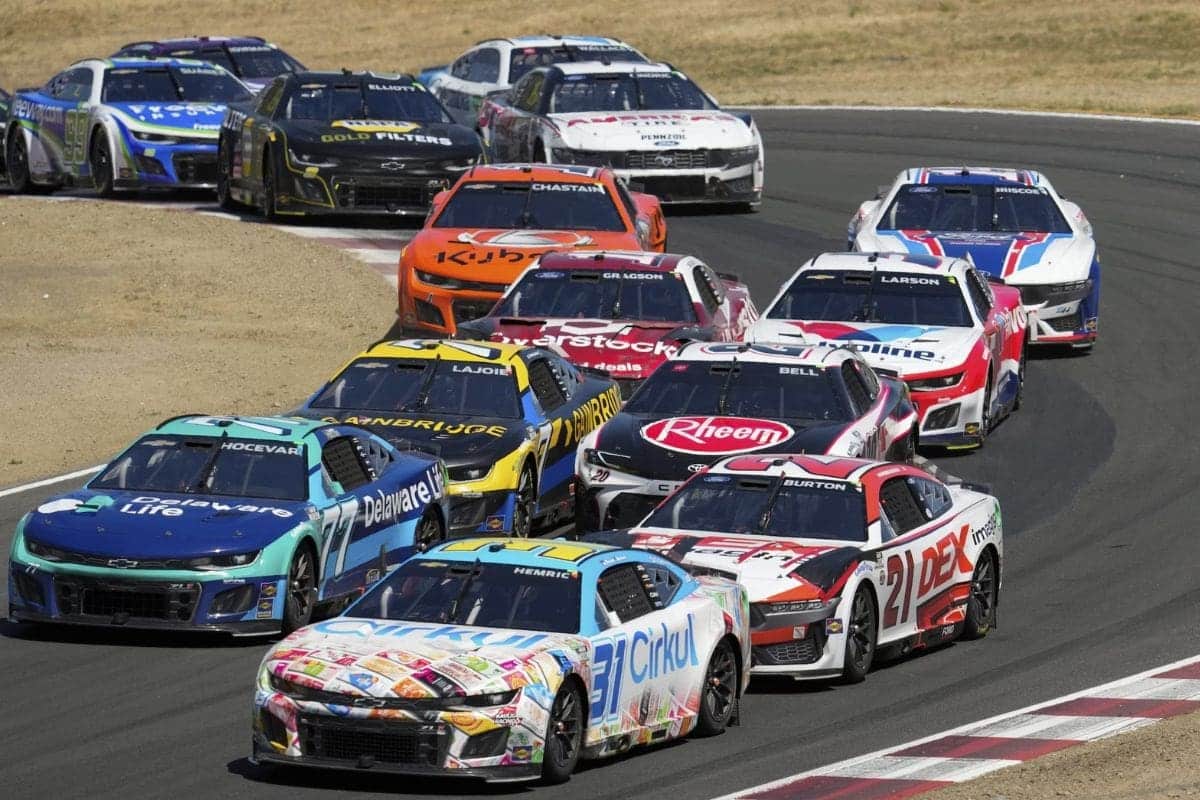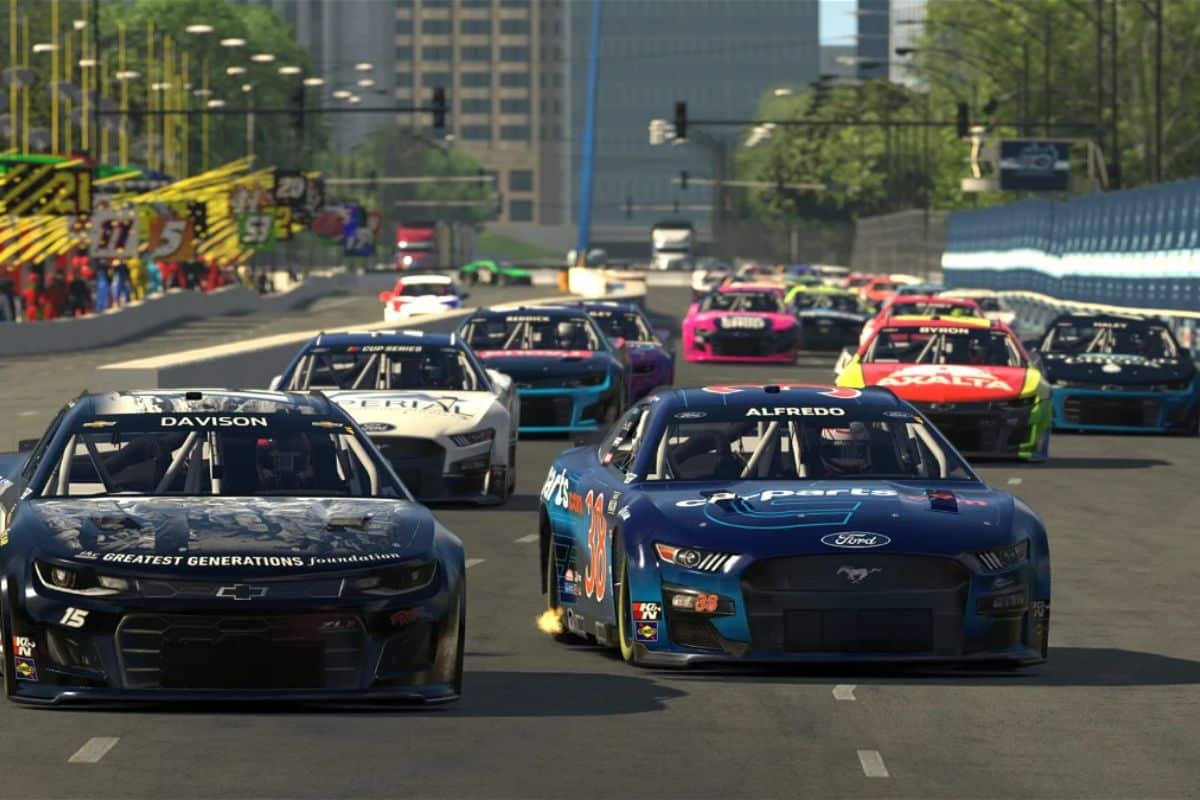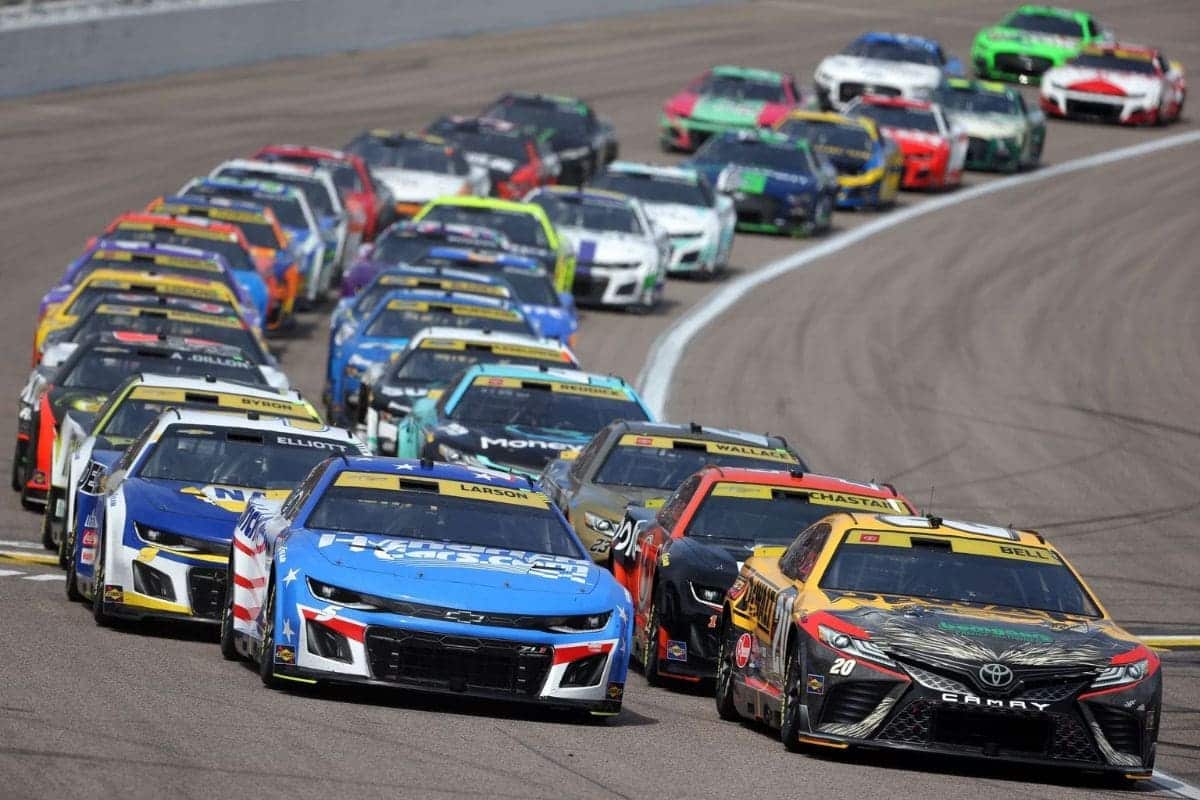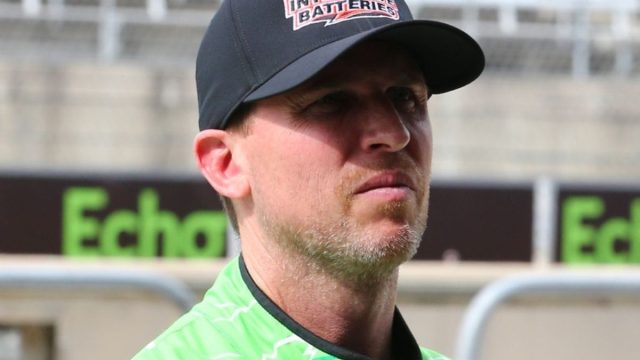Denny Hamlin Criticizes NASCAR’s Charter Deals: As the clock ticks down on NASCAR’s current charter agreements, Denny Hamlin‘s pointed criticisms have brought to light significant concerns regarding the sustainability and transparency of these deals. Hamlin highlights a pressing issue: the risky nature of broadcast revenue guarantees and inconsistent decision-making, which hinder teams’ abilities to plan long-term and invest securely. This discussion emphasizes the necessity for more robust and transparent negotiations and raises critical questions about the future landscape of NASCAR’s financial and operational framework. What specific changes are team owners advocating for, and how might these demands reshape the sport’s future?
Key Highlights
- Denny Hamlin criticizes the inconsistent and insecure nature of current NASCAR agreements.
- Hamlin highlights frustrations with NASCAR’s short-term decision-making processes.
- NASCAR’s inability to secure broadcast rights revenue beyond seven years undermines long-term team investments.
- Team owners seek permanent charters for financial stability and equitable conditions.
- Owners demand a larger revenue share and a permanent role in decision-making for sustainable growth.
High Tensions in NASCAR Charter Negotiations
The ongoing charter negotiations between NASCAR and race teams have escalated to unusual levels of tension, as both parties struggle to reach a mutually beneficial agreement before the current deal expires on December 31st. Central to the discord is the race teams’ fervent pursuit of permanent charters, a crucial change they argue is necessary for financial stability and parity with other professional sports leagues.
Under the current system, race teams are overflowing money annually, a situation that has become indispensable for team owners and stakeholders equally.

Denny Hamlin, a prominent figure in the NASCAR community, has been vocal about the inefficacies of the existing charter system. Hamlin’s critique centers on the inconsistencies and lack of long-term security provided by the current agreements. He likens the negotiations to a frustrating dance where progress is made, only to be undone shortly thereafter. This ‘one step forward, two steps back’ dynamic has stymied productive dialogue, leaving both sides rooted in their positions.
The financial implications of these negotiations cannot be overstated. As it stands, the transient nature of the charters leads to an unstable economic environment for race teams. Without the assurance of permanent charters, teams face significant challenges in securing sponsorships, investing in long-term infrastructure, and planning for future seasons. This instability not only hampers financial health but also affects the competitive landscape of the sport.
NASCAR Team Owners Unite for Charter Demands
Unified resolve among NASCAR team owners has crystallized into a formidable coalition demanding fair charter terms for all teams, highlighting a collective commitment to overhaul the financial framework of the sport. This unprecedented unity among team owners, including prominent figures from 23XI Racing, Hendrick Motorsport, Joe Gibbs Racing, and Roush Fenway Racing, emphasizes the critical nature of the current charter negotiations.
The present system, which lacks permanent charters, has proven financially unsustainable, particularly for smaller teams struggling to attract outside investment.
The solidarity among these powerhouse teams and the other 15 teams in the NASCAR ecosystem signifies a shared dedication to ensuring equitable and viable financial conditions. The current charter agreement has been increasingly criticized for its failure to provide a stable economic environment, making it arduous for teams to secure long-term sponsorship and investment partnerships.
By vowing not to sign any agreement unless fair terms are provided for all teams, these influential owners are effectively leveraging their collective influence to press for systemic change.
This union is not merely a reaction to the latest proposal but a strategic move aimed at fostering a more level playing field. The recent document issued by NASCAR, described by team owners as the ‘worst one yet,’ has only galvanized this unified front.
The insistence on fair terms is not only about immediate financial relief but about ensuring the long-term sustainability and growth of the sport. This cohesive stance represents a critical moment in NASCAR’s history, as team owners seek to reshape the sport’s economic landscape to benefit all stakeholders involved.
Hamlin’s Frustrations and NASCAR’s Revenue Uncertainty
In the midst of this collective push for equitable charter terms, Denny Hamlin has expressed his deep frustrations, highlighting the broader issue of revenue uncertainty within NASCAR. Speaking openly on his Actions hurtful podcast, Hamlin emphasized the cyclical nature of NASCAR’s decision-making processes, describing it as ‘one step forward and two steps back.’ This sentiment captures the sadness felt by many team owners who, despite productive one-on-one meetings with NASCAR executives, find their concerns inadequately addressed in subsequent official documents.
“It just seems to be going backward. Time after time that the the newest and latest is certainly not very good so it just seems like we always take one step forward and two steps back. And you know, I just don’t know the reason for it. It was very interesting because we had one-on-one meetings with NASCAR executives and we felt like those meetings went well and we thought we were heard and then when you get a document that doesn’t cover any of the things that we talked about.” – Hamlin
Hamlin’s grievances are not merely conduct but fundamentally financial. NASCAR has publicly admitted its inability to guarantee broadcast rights revenue beyond the next seven years, a disclosure that inflame the financial apprehensions of key stakeholders. This uncertainty undermines the long-term planning and investment strategies critical for the sustainability of teams. Hamlin believes the core issue revolves around money, control, and power, suggesting a perceived imbalance in how revenues and decision-making authority are distributed.
“I quickly said, ‘permanent charters don’t cost anything’ and they still do not cost anything. The only thing it costs is control and that’s the thing. Every agreement gets renegotiated after every TV contract. So, if the TV contract went to $10 in seven years, we still renegotiate the terms (over) that. So, it’s not like we were saying, and we have never ever said that we need this amount of money for eternity — as long as we’re part of this sport, we need this amount of money.” – hamlin
The crux of Hamlin’s argument lies in the disconnect between the promises made during discussions and the content of official agreements. This disparity fuels a broader mistrust in the governance structures within NASCAR, raising questions about whose interests are being prioritized.
Permanent charters don’t cost anything. https://t.co/8wqhniRfnv
— Denny Hamlin (@dennyhamlin) June 10, 2024
Charter Expectations and Revenue Disputes
Navigating through the intricate landscape of charter expectations and revenue disputes, NASCAR and its team owners find themselves at a pivotal turning point where the very definition of their partnership is being contested.
The introduction of charters was initially intended as a mechanism to guarantee a steady revenue stream for teams committed to full-time competition. However, this framework is now under scrutiny as team owners push for a model that aligns more closely with other professional sports franchises, which traditionally possess a degree of influence over decision-making processes.

NASCAR’s reluctance to cede such control has exacerbated tensions. Unlike traditional franchises, NASCAR’s charters were never envisioned to afford owners significant governance power. This distinction has become a flashpoint in the ongoing debates, as team owners argue for either a permanent seat at the decision-making table or a larger share of revenue, thereby reducing their dependence on volatile sponsorship deals. The current revenue distribution model leaves teams vulnerable to financial instability, a risk that owners are increasingly unwilling to accept without greater assurances.
The friction is further intensified by the fundamental difference in expectations. NASCAR aims to maintain its centralized authority, ensuring uniformity and control over the sport’s direction. On the other hand, team owners are advocating for a structural evolution that grants them more security and influence, akin to the franchise systems seen in leagues like the NFL or NBA.
This impasse over charter expectations and revenue allocation not only highlights the diverging priorities of the stakeholders but also poses significant implications for the future dynamics of the sport. The resolution of these disputes will certainly shape the next chapter of NASCAR’s organizational framework.
Team Owners’ Key Points and Future Prospects
In their ongoing negotiations with NASCAR, team owners have emphasized the importance of addressing four critical points to secure the long-term stability and growth of their investments. These points are designed to guarantee that the teams are financially sustainable and have a solid foundation to build upon.
“All we’re saying is that Rick Hendrick, Roger Penske, Joe Gibbs have spent decades building this sport and you cannot deny they built the sport with their drivers, with their teams, and everything. That they deserve the blue sky which is, they have an asset that they can pass down to their kids and their grandkids.
“Especially a family organization like Joe Gibbs Racing, they want to have something they can give their kids. Hey, this business is now yours, this charter is yours because in the instance that it all goes crumbling down like in Stuart Haas’ scenario, they were able to sell something to get back some of that investment that they spent over decades.” – Hamlin
- Increased Revenue Share: Team owners seek a larger portion of the revenue pie to reduce dependency on fluctuating sponsorship deals. Following the recent multi-billion dollar TV rights agreement, NASCAR has agreed to a significant increase, yet the specifics remain a focal point of debate.
- Participation in Decision-Making: Owners demand a seat at the table to influence decisions that could introduce unforeseen expenses. This is vital for maintaining financial predictability and safeguarding team investments.
- Permanent Charters: The request for permanent charters is aimed at providing long-term security for team investments. NASCAR, however, can only commit to a seven-year term, mirroring the length of the current TV deal. Team owners argue that permanence would protect their legacy and offer stability for future generations.
- Revenue from New Business Opportunities: Teams seek a share of profits from any new ventures NASCAR undertakes. This would ensure that team owners benefit from the sport’s growth and innovation.
- Protection of Legacy Investments: As Denny Hamlin highlighted, team owners like Rick Hendrick, Roger Penske, and Joe Gibbs have invested decades into the sport. They desire assurances that their investments can be passed down, maintaining family legacies and ensuring the longevity of their contributions to NASCAR.

News in Brief: Denny Hamlin Criticizes NASCAR’s Charter Deals
The ongoing tensions in NASCAR charter negotiations highlight the critical importance of transparent and stable agreements to guarantee long-term planning and investment security.
Denny Hamlin’s criticisms, focused on the lack of security and inconsistencies in current deals, mirror broader concerns regarding NASCAR’s revenue guarantees and decision-making processes.
Addressing these issues is crucial for establishing a fair playing field and securing the future prospects of all teams involved in the sport.
ALSO READ: Denny Hamlin Echoes Dale Jr’s Call for Goodyear Experiment in Iowa
